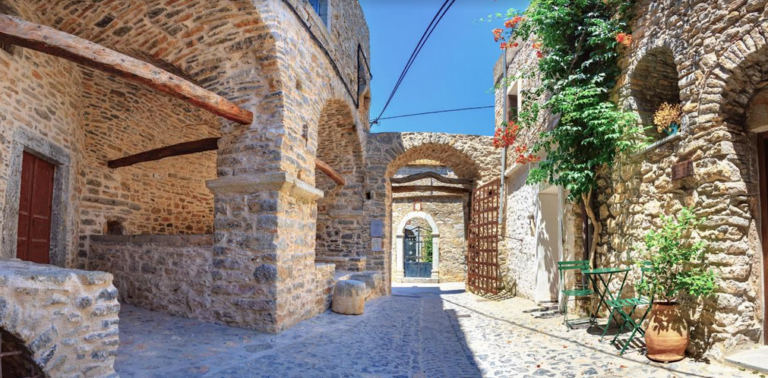‘Craggy Chios’ is how Homer describes his supposed homeland, the mountainous outcrop next to the Turkish coast. Forever tied to its near neighbour, the island has had a turbulent history; the bloody massacre of 1822 during the War of Independence that killed 30,000 and exiled even more, major earthquakes, including one in 1881, in which 6,000 Chiots perished, several fires that have devastated the northern forests, and, recently, the arrival of a large number of refugees. Yet despite these cruel twists of history, the island remains a fulfilling destination with friendly locals, fascinating villages and a landscape of rare beauty.
According to Pausanias, Chios received its name from the son of Poseidon who was born after a tryst with a local nymph. Chios was born during a snowfall and thus his name means ‘of snow’. Other names for Chios include Ophioussa, land of snakes, and Pytioussa, pine-filled.
Long associated with the mastic bush and the sweet aromatic resin that had many uses until the advent of petroleum products, the villages of Pyrgi, Mesta and Olimpi where the mastic is grown and processed are enchanting. In these villages and others, narrow alleys are guarded by mediaeval gates, and lofty towers soar over homes half a millennium old.
Out of the capital are the finest fruit orchards in Greece and centuries-old estates owned by elite shipping families, beyond are deep valleys, uncrowded sandy shores, dramatic black pebble beaches, forests of reaching pines, Byzantine monasteries with haunting histories, and craggy headlands where our island son, Homer, recited his epic poems.
Ask me anything
Explore related questions





